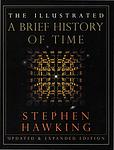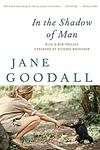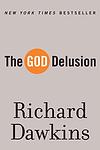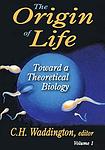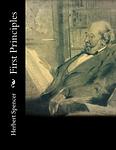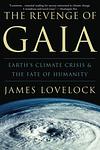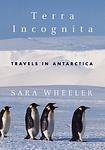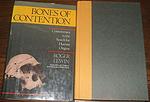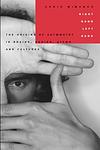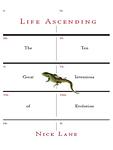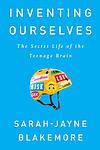The Greatest British "Life Sciences" Books of All Time
Click to learn how this list is calculated.
This list represents a comprehensive and trusted collection of the greatest books. Developed through a specialized algorithm, it brings together 300 'best of' book lists to form a definitive guide to the world's most acclaimed books. For those interested in how these books are chosen, additional details can be found on the rankings page.
Genres
The "Life Sciences" category in books encompasses a broad range of disciplines that study living organisms and life processes. This includes fields such as biology, botany, zoology, microbiology, genetics, biochemistry, and ecology, among others. Books in this category may delve into the intricate mechanisms of the cell, the complex interactions within ecosystems, the genetic blueprints that dictate the traits of organisms, or the evolutionary processes that have shaped life on Earth. They can range from introductory texts for students to advanced research publications for specialists. The Life Sciences category is essential for anyone seeking to understand the natural world, from the molecular level to the biosphere, and it serves as a vital resource for students, researchers, and professionals in health, agriculture, conservation, and biotechnology.
Countries
Date Range
Reading Statistics
Click the button below to see how many of these books you've read!
Download
If you're interested in downloading this list as a CSV file for use in a spreadsheet application, you can easily do so by clicking the button below. Please note that to ensure a manageable file size and faster download, the CSV will include details for only the first 500 books.
Download-
1. On the Origin of Species by Charles Darwin
This groundbreaking work presents the theory of evolution, asserting that species evolve over generations through a process of natural selection. The book provides a comprehensive explanation of how the diversity of life on Earth developed over millions of years from a common ancestry. It includes detailed observations and arguments to support the idea that species evolve by adapting to their environments, challenging the prevailing belief of the time that species were unchanging parts of a designed hierarchy.
-
2. A Brief History of Time by Stephen Hawking
A Brief History of Time is a popular science book that explores a broad range of topics in cosmology, including the Big Bang, black holes, light cones and superstring theory. The author does not shy away from complex theories and concepts, but explains them in a way that is accessible to non-scientific readers. The book also discusses the possibility of time travel and the boundaries of scientific knowledge. Throughout, the author emphasizes the ongoing quest for a unifying theory that can combine quantum mechanics and general relativity into one all-encompassing, coherent theoretical framework.
-
3. The Selfish Gene by Richard Dawkins
This groundbreaking book presents a revolutionary perspective on the theory of natural selection. The author argues that genes, rather than individuals or species, are the true units of evolution. He suggests that these 'selfish' genes are driven by their own survival, leading to complex behaviors and characteristics in the organisms they inhabit. This work reframes our understanding of evolution, emphasizing the gene's role in shaping biological life and behavior.
-
4. The Voyage of the Beagle by Charles Darwin
This book is a vivid and exciting travel memoir as well as a detailed scientific field journal covering biology, geology, and anthropology that demonstrates the author’s keen powers of observation, written at a time when Western Europeans were still discovering and exploring much of the rest of the world. The author's five-year journey took him from the coasts of South America, Australia, and Africa to the South Pacific islands, during which he collected and documented the natural history of these areas. The voyage and the specimens he brought back would later form the basis for his famous theory of evolution.
-
5. On Growth and Form by D'Arcy Wentworth Thompson
"On Growth and Form" is a landmark work that explores the science of biology from a mathematical perspective, emphasizing the patterns and geometry found in living organisms. The book discusses how physical and mathematical laws influence the way that organisms grow and develop, and how different species exhibit similar patterns of growth. It also touches on how these principles apply to the structure of the universe and the patterns found in nature. This work is considered a foundational text in the field of mathematical biology.
-
6. In the Shadow of Man by Jane Goodall
This book provides a fascinating and detailed account of the author's groundbreaking research on wild chimpanzees in Africa. The author offers insights into the complex social structure, behavior, and personalities of these primates, challenging the then-prevailing scientific belief that only humans were capable of having personalities and emotions. Through her studies, the author revolutionized our understanding of our closest relatives in the animal kingdom, and she also discusses the threats to their survival and the many challenges they face due to human activities.
-
7. To the North by Elizabeth Bowen
The novel follows the life of a young woman who, after the death of her husband, moves to London and falls in love with her sister-in-law's lover. The narrative dives deep into the complexities of human relationships and emotions, exploring themes of love, betrayal, and loss. As the protagonist navigates her way through grief and fresh love, the readers are offered a profound exploration of her internal struggles, painting a vivid picture of her emotional journey.
-
8. The God Delusion by Richard Dawkins
This book is a well-known critique of religion, arguing that belief in a supernatural creator significantly lacks empirical evidence. The author asserts that faith encourages wars and fosters fanaticism. He also challenges the idea that morality can only come from religion, suggesting instead that humans possess innate empathy and cooperation. The book also explores the roots of religion, explaining its evolution as a byproduct of our tendency to assign agency to inanimate objects and forces. Ultimately, the author encourages atheism and a sense of awe derived from science and the natural world.
-
9. Through the Language Glass: Why the World Looks Different in Other Languages by Guy Deutscher
This book explores the link between language and perception, challenging the conventional belief that languages are only tools for describing reality and do not influence the way we perceive the world. The author delves into how different languages can shape the way their speakers understand and interact with their surroundings, arguing that linguistic differences can significantly impact cognition and perception. The book combines linguistic analysis, cultural history, and cognitive science to provide a fascinating examination of how our mother tongue can affect our cognitive processes, including color perception and spatial orientation.
-
10. The Nature of Life by C. H. Waddington
"The Nature of Life" is a comprehensive exploration of the biological and philosophical aspects of life. The author delves into the complexity of life, discussing concepts such as evolution, genetics, development, and the environment. The book also explores the philosophical implications of these concepts, examining the relationship between science and philosophy and the nature of life itself. The author's extensive knowledge and innovative ideas provide a unique perspective on the subject, making it a thought-provoking read for anyone interested in biology and philosophy.
-
11. First Principles by Herbert Spencer
"First Principles" is a philosophical work that delves into the fundamental principles of the universe and human nature. It explores the idea of evolution and the law of organic progress, arguing that all entities, whether biological, psychological, or sociological, evolve from simple and homogeneous to complex and heterogeneous. The book also discusses the concept of 'survival of the fittest,' positing that this principle governs all transformations. It is a profound exploration of the interconnectedness of the universe and the natural laws that govern it.
-
12. The Revenge of Gaia by James Lovelock
The book presents a compelling argument about the Earth's self-regulating system, Gaia theory, and the severe impact of climate change on it. The author warns that if humans continue to harm the environment, Gaia will take revenge, leading to a much hotter and less hospitable planet. He proposes solutions to mitigate the damage, such as nuclear power and sustainable technology, emphasizing the urgency to act before it's too late.
-
13. Terra Incognita by Sara Wheeler
"Terra Incognita" is a detailed and personal account of the author's seven-month journey across Antarctica. The book combines historical research, scientific facts, and the author's personal experiences, providing an insightful look into the harsh and beautiful landscape of Antarctica. It explores the physical and emotional challenges faced by the author as well as the rich history and scientific discoveries associated with the continent.
-
14. Entangled Life by Merlin Sheldrake
"Entangled Life" explores the fascinating world of fungi and their intricate relationships with other organisms. From the underground networks that connect trees and plants to the role of fungi in shaping ecosystems, the book delves into the hidden realms of mycelium and its impact on our planet. With captivating storytelling and scientific insights, the author reveals the astonishing diversity and resilience of fungi, challenging our understanding of life itself.
-
15. Bones Of Contention: Controversies In The Search For Human Origins by Roger Lewin
"Bones of Contention: Controversies in the Search for Human Origins" delves into the complex world of paleoanthropology, exploring the heated debates and conflicting theories surrounding the study of human evolution. Through a meticulous examination of fossil discoveries, scientific methodologies, and the personalities involved, the book sheds light on the ongoing quest to unravel the mysteries of our ancient past. With a balanced and engaging approach, the author navigates through the controversies, providing readers with a captivating exploration of the ever-evolving field of human origins.
-
16. The Making Of Memory by Steven Rose
"The Making of Memory" explores the intricate workings of the human brain and the fascinating process of memory formation. Drawing on extensive research and scientific studies, the author delves into the complex interplay between genetics, environment, and personal experiences that shape our memories. From the biological mechanisms involved in memory consolidation to the impact of emotions and trauma, this thought-provoking book offers a comprehensive understanding of how memories are created and stored within our minds.
-
17. Right Hand, Left Hand by Chris McManus
"Right Hand, Left Hand" explores the fascinating world of handedness and its impact on human behavior, culture, and evolution. Chris McManus delves into the history of handedness, from ancient cave paintings to modern scientific studies, revealing the complex interplay between genetics, brain structure, and societal influences. With a blend of scientific research, personal anecdotes, and cultural analysis, McManus offers a thought-provoking exploration of why most people are right-handed and how handedness shapes our perception, language, and creativity.
-
18. Life Ascending by Nick Lane
"Life Ascending" explores the remarkable and diverse mechanisms that have shaped life on Earth, from the origins of life to the evolution of complex organisms. Nick Lane delves into the fundamental questions of biology, unraveling the mysteries of how life emerged from the primordial soup and how it has evolved over billions of years. Through captivating storytelling and scientific insights, Lane takes readers on a journey through the intricate web of life, revealing the extraordinary adaptations and innovations that have allowed organisms to conquer new environments and thrive in the face of challenges.
-
19. Inventing Ourselves: The Secret Life Of The Teenage Brain by Sarah-Jayne Blakemore
"Inventing Ourselves: The Secret Life Of The Teenage Brain" explores the fascinating world of adolescent brain development, shedding light on the unique cognitive and emotional processes that shape teenage behavior. Drawing from cutting-edge research and personal anecdotes, the book delves into the complexities of adolescence, offering valuable insights into the impact of social media, risk-taking behavior, and mental health on teenagers. It ultimately emphasizes the importance of understanding and supporting teenagers during this critical period of brain development.
Reading Statistics
Click the button below to see how many of these books you've read!
Download
If you're interested in downloading this list as a CSV file for use in a spreadsheet application, you can easily do so by clicking the button below. Please note that to ensure a manageable file size and faster download, the CSV will include details for only the first 500 books.
Download
